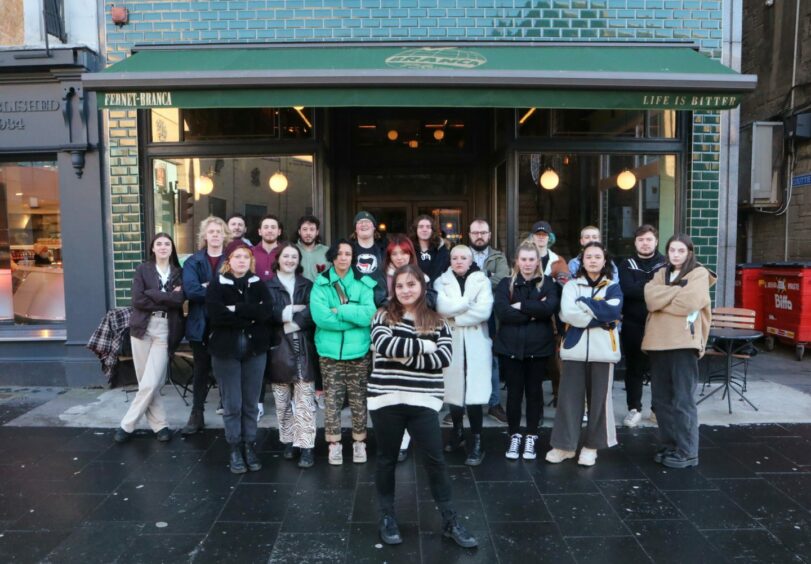The self-care side of social media has grasped hold of a new buzzphrase this week, and just like gaslighting lit up the internet last year, ‘weaponised incompetence’ is just waiting for the blue torch paper.
But before these become the words on every Tik Tokker’s lipsync, I think it’s important to consider some of the nuances around this behaviour.
‘Weaponised incompetence’ is, as the name suggests, a manipulation tactic where a person deliberately feigns being bad at something for personal gain, or to hurt someone else.
It’s also known as the ‘bumbling fool’ tactic.
And it’s a term often – and rightly – found in discussions around domestic or narcissistic abuse.
In these types of situations, weaponised incompetence can sound like ‘I just never cook because you’re so much better at it’ or ‘oops, you’re not meant to put Fairy in the washing machine? Well, better leave the laundry to you from now on’.
It works to create an unfair imbalance in power and responsibility, combining guilt-trip and flattery to perpetuate that messed-up status quo.
It absolutely should be exposed, and I’m glad that we’re naming and shaming it now.
But, while it is a common abuse tactic which should be talked about, not every instance of weaponised incompetence is abuse; because not every instance of it is domestic.
A (very specific) defence of weaponised incompetence
When I first read about this phenomenon, I didn’t immediately think of past partners (though it would’ve applied in some cases).
Instead, I thought of past work colleagues.
Older ladies who pretended they couldn’t figure out the computer when asked to do a particularly mind-numbing ream of admin, until someone else took over.
Or young lads who were tasked with polishing wine glasses and left enough streaks to fill an early-2000s hair salon, never to be asked to do it again.
Infuriating, lazy, selfish, I used to think. These people are the Gina Linettis of the world. (If you know, you know.)
But then I realised: Gina was a genius.
See, I’ve had about 12 different service industry jobs in my life, starting when I was 13 years old (I was a tiny Avon lady, and a damn good one) so I’ve had the benefit of getting to know a lot of different workplaces in my life – restaurants, bars, call centres, department stores, clinics – before I finally landed in a newsroom.
And the sad truth is that in these workplaces, seemingly incompetent people often have the easiest lives.
Work enough low-level positions and you’ll see that when incompetence is weaponised in those workplaces, it is usually an indication not of a malicious individual, but of an exploitative employer.
Exploited over-competence
I am what my generation affectionately calls a ‘former gifted kid’, meaning I was a top pupil at school, had uninterrupted sky-high grades, and have never once relaxed in my entire life.
I carried that full-tilt effort, golden-girl perfectionism from education into my working life, but was quickly met with a disappointing realisation – gold stars don’t add up to wage rises, better shifts or extra reading time, like they do in school.
In fact, at work, the more I showed I could do, the more I was expected to do.
I repeatedly ended up doing the worst shifts (opening shops, closing bars) because ‘you’re the only one we can trust to be on your own’.

I found myself, more than once, being unofficial assistant manager – meaning I had all the extra responsibilities, and no more of that important thing I went to work for: money.
(And yes, I asked for it.)
Eventually, every time, my reputation for being the reliable one overloaded me with obligations, until I got to the point where I wasn’t reliable at all. I became exhausted, withdrawn, sarcastic, forgetful and desperate for a break.
Anyone who’s worked in retail or hospitality knows all too well that employee complaints are almost never taken as seriously as you’d like (hello Macmerry).
Kicking off about your mental health in a zero-hours contract environment almost always adds up to no more shifts.
So, over and over, I did the only thing I could think of – the bare minimum.
The workers’ weapon
I’d pretend to be clueless or klutzy or even stupid at work, because the only way to get away on time was to ensure the manager wanted me out of the way.
I let people down deliberately every now and then, just to get a bit of breathing space.
I even warned shiny new young folk: “Don’t let them see how good you are.”
Instead of try your best, take pride in your work, my mantra on the clock became keep expectations as low as your wage.
I’m not proud of weaponising my incompetence, but I’m not ashamed of it either.
In a culture where competence is exploited, strategic incompetence may be the only weapon an employee has at their disposal.
That’s not abuse in a partnership; that’s self-preservation in an environment where productivity and profit are valued over the wellbeing of the worker.
So before this latest buzzword goes viral and we wield the words ‘weaponised incompetence’ in the workplace, let’s consider where the power lies.
And wonder why we need weapons at work to begin with.
_____________________________________________________________________
Author’s note: This defence of weaponised incompetence is specific to employees surviving low-level, exploitative service industry jobs. If your partner is using this tactic within your relationship, this is a form of manipulation and, in some cases, emotional abuse. You can learn more here.












